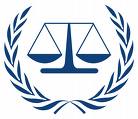
At the first U.S. appearance at the International Criminal Court’s annual meetings, war crimes ambassador Stephen Rapp said yesterday that the United States is committed to supporting accountability and ending impunity for crimes against humanity.
Though the U.S. is not a signatory to the Rome Statute, the treaty that established the court, it has "not been silent in the face of crimes against the basic code of humanity,” said Rapp. “Far from it: We have worked shoulder to shoulder with other states to support accountability and end impunity for hauntingly brutal crimes in the former Yugoslavia, Rwanda and elsewhere."
Rapp also expressed concern over the definition of a “crime of aggression.” Though the ICC can try a country for aggression, its legal definition is yet to be determined and has been a topic of debate.
Rapp said, "Our view has been and remains that, should the Rome Statute be amended to include a defined crime of aggression, jurisdiction should follow a Security Council determination that aggression has occurred."
Other countries say that the U.N. General Assembly or the International Court of Justice should make that determination.
Under the leadership of Ambassador Rapp, a strong advocate for international criminal justice, and with vocal backing from Secretary of State Clinton and U.N. Ambassador Rice, the U.S. has begun engaging with the international court. In another symbolic gesture, the U.S. said Monday it would cooperate with the ICC to prosecute perpetrators of post-election violence in Kenya if a local mechanism fails.
While overcoming domestic skepticism and congressional opposition to becoming a state party to the ICC will require time and expend valuable political capital, the Obama administration is undoubtedly taking clear steps in that direction. In the meantime, there is much the United States could do to support the court. The big ticket item is, of course, the warrant for Sudanese President Bashir’s arrest. The administration should not allow its status vis-à-vis the ICC act as an excuse not to push for Bashir to step down and face justice in The Hague. Until now, the administration has quietly voiced support, but shying away from a more public support for Bashir’s immediate arrest only serves to embolden the Sudanese leader and send the message that accountability for war crimes isn’t one of the Obama administration’s top priorities in Sudan.
Laura Heaton contributed to this post.

